Search Results
Showing results 1421 to 1440 of 1563
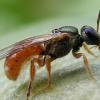
Giant Chromosomes: Fruit Fly DNA and You
Source Institutions
Many of the genetic sequences found in the fruit fly genome are similar to those found in humans.
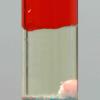
Five-Layer Density Column
Source Institutions
In this activity, learners can create five-layer density columns by employing one of three (or all) methods.
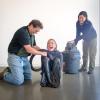
Feeling Pressured
Source Institutions
In this activity, learners (at least three) work together to explore the effects of atmospheric pressure.

Far-Out Corners
Source Institutions
Are there boxes, is this an illusion, or is this real life Q-bert? Illusions are always fun to build especially when you can build them.
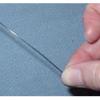
What Smart Metal!
Source Institutions
In this activity (pages 3-4), learners investigate the properties of smart materials, which are materials that respond to things that happen around them.
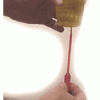
Single Serving Volcanism
Source Institutions
In this activity, learners eat a snack and make a model of the plumbing system of a volcano.
Fish Communities: National Marine Sanctuaries
Source Institutions
In this data activity, learners will compare and contrast fish communities, diversity and habitats in U.S. National Marine Sanctuaries.

Jumpy Dolls
Source Institutions
In this activity, learners are challenged to design and construct a jointed figure that moves in a motion (something like jumping jacks) when a string is pulled.
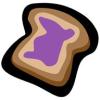
Beginning Statistical Inquiries into the Scientific Method: Jelly-Side-Down
Source Institutions
This activity allows learners to explore the scientific method in an open-ended fashion, using the 4-P Approach to Science Inquiry developed by the University of Wisconsin, Beloit.
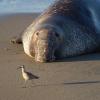
Natural Selection in Protected and Unprotected Populations
Source Institutions
In this simulation, learners model two elephant seal populations and how they change over time. Learners start with cards representing a variety of seals.

How Big is Small
Source Institutions
In this classic hands-on activity, learners estimate the length of a molecule by floating a fatty acid (oleic acid) on water.
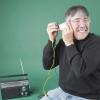
Cup Speaker
Source Institutions
Make your own speaker with a magnet, wire, and paper cup! If you have a radio with a headphone plug and an old pair of headphones, this is a great tinkering activity.
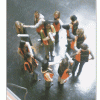
Running in Circles
Source Institutions
In this group activity, learners use some common objects and work together to simulate the Coriolis effect. During the challenge, learners make predictions and test different scenarios.
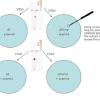
Transformation of E. coli Using Green Fluorescent Protein
Source Institutions
In this activity related to plant biotechnology, learners transform a strain of E. coli using green fluorescent protein from a bioluminescent jellies.
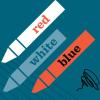
The Stroop Effect
Source Institutions
In this activity, learners experiment with the Stroop Effect by challenging themselves and others to try and read a list of colors as quickly and accurately as possible, with a twist.
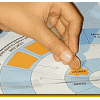
Light Quest
Source Institutions
Learners test their "light-smarts" by playing a game called "Light Quest!" The game board represents an atom and each player represents an electron that has been bumped into the atom's outer unstable
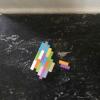
Brick Drop Challenge
Source Institutions
In this design challenge, leaners attempt to build a strong structure out of LEGO® bricks that can withstand a 4-foot drop.
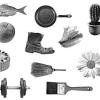
Memory Solitaire
Source Institutions
In this online game, learners practice memory recall. They are shown a collage of pictures for two minutes, then have to write down everything they remember and check how they did.

Falling Feather
Source Institutions
In this physics activity, learners recreate Galileo's famous experiment, in which he dropped a heavy weight and a light weight from the top of the Leaning Tower of Pisa to show that both weights fall
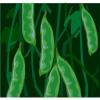
Lima Bean Bacteria DNA Extraction
Source Institutions
This laboratory exercise is designed to show learners how DNA can easily be extracted from lima bean bacteria. This experiment requires the use of a centrifuge (not included in cost of materials).
